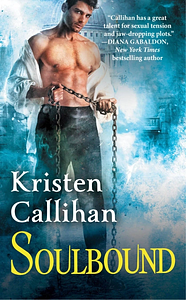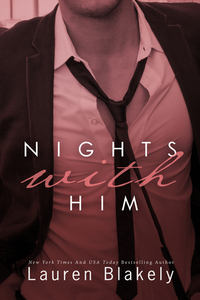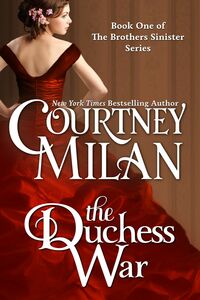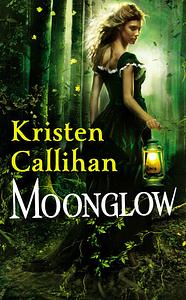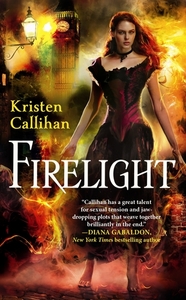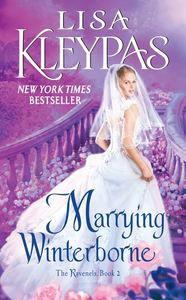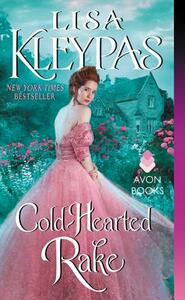Take a photo of a barcode or cover
authorrubyduvall's Reviews (154)
DNF 56%. :(
I picked up Falling for the Highlander because it was on sale and because I've never read anything by Lynsay Sands before. (I don't mind reading the books in a series out of order.)
Sands' writing style is really fussy. Everything is over-explained: decisions, how one character knows another, basic staging and choreography. I don't need to know the minutia of how Murine's dress snagged on a branch or the precise way she holds a waterskin. Worse, the wordiness often got in the way of the love scenes, turning them awkward.
I also really don't need the previous books rehashed for me—in the dialogue, no less, which was extra wordy. If an author wants someone reading out of order to buy previous books, they gotta limit themselves to a tasty hint or two. I really don't need anything more than what's necessary to understand the plot of the book I'm reading. And if a reader has already read those books, you're boring tf out of them!
Some of the emotional back-and-forth, from misunderstandings to mistaken assumptions, were contrived and exhausting. Just two examples:1) after Murine and Dougall's first kiss, Dougall is overly harsh about stopping things because he's turned on, and instead of telling her so or instead of Murine asking, she just assumes he's mad because he's realized she's "loose"; and 2) when Murine wakes up in the Buchanan hunting lodge after she's shot with an arrow, she sees she's alone and immediately assumes Dougall's not around because he doesn't care. JFC lady!
Worse, the plot was often poorly conceived or simply too silly for me to suspend my disbelief. For example,early in the story, Murine spends most of the day passed out because Dougall is apparently holding her so tight that she's short of air and keeps passing out , which is absolutely ridiculous. Murine also kept wandering off by herself (quite the case of holding the Idiot Ball), or somehow she'd wake up just as Dougall left her side.
I'd have also liked it if Sands (or at least her editor) had paid a little more attention to certain details. Dougall uses the word "skeevy" at one point, which didn't enter into use until the 1970s. Overall, the writing and dialogue didn't do a great job of grounding me in the time period.
I picked up Falling for the Highlander because it was on sale and because I've never read anything by Lynsay Sands before. (I don't mind reading the books in a series out of order.)
Sands' writing style is really fussy. Everything is over-explained: decisions, how one character knows another, basic staging and choreography. I don't need to know the minutia of how Murine's dress snagged on a branch or the precise way she holds a waterskin. Worse, the wordiness often got in the way of the love scenes, turning them awkward.
I also really don't need the previous books rehashed for me—in the dialogue, no less, which was extra wordy. If an author wants someone reading out of order to buy previous books, they gotta limit themselves to a tasty hint or two. I really don't need anything more than what's necessary to understand the plot of the book I'm reading. And if a reader has already read those books, you're boring tf out of them!
Some of the emotional back-and-forth, from misunderstandings to mistaken assumptions, were contrived and exhausting. Just two examples:
Worse, the plot was often poorly conceived or simply too silly for me to suspend my disbelief. For example,
I'd have also liked it if Sands (or at least her editor) had paid a little more attention to certain details. Dougall uses the word "skeevy" at one point, which didn't enter into use until the 1970s. Overall, the writing and dialogue didn't do a great job of grounding me in the time period.
DNF at 42%.
Random things kept pulling me out of the story. The dialogue sometimes came off a bit underdeveloped, for example, or even a bit immature at times.
Another example: during their first dinner out, after Michelle learned the barest facts about why Jack was seeking therapy, she's pretty harsh when she shuts down his insinuation of them dating by telling him, "I'm not interested in getting involved with someone who has intimacy issues."
First, she's made a lot of assumptions based on news articles, which hardly constitute a comprehensive look at someone's personal relationships and how emotionally available they are. Second, she doesn't acknowledge that she's learned something sensitive about Jack--not only that he lost someone, but also that he's seeking therapy about it. Third, she then uses that knowledge against him unfairly, which put a bad taste in my mouth.
Of course, Michelle admits as much in the text. "I know that sounds harsh." (Ya think?) And she does give Jack her reason for being leery of dating him, but wow could she have phrased it better.
For example: "Let me say first that I'm sorry about what happened a year ago and that your personal tragedy didn't remain personal. Second, I'm glad that you've decided to seek therapy, and I'm sorry if taking that step was made more difficult because of our accidental meeting at the hotel. I hope I steered you right by asking Kana to meet with you. Anyway, because I know something about you that's highly personal and vulnerable, let me do the same and admit that I'm still pretty raw over feelings I had for someone that turned out to be misplaced. While I like you a lot, I'm worried that you're not in the right mental space for a relationship, so I'm going to insist that we part ways after tonight."
Another thing that irked me was Jack's sister, Casey, using the same, tired phrases that lots of people in therapy have to deal with. "You need to fix your head. We have a business to run." Or "Get your butt in gear and stop all this self-loathing." Or "You are going to fix yourself. Because it's time to move on."
Yikes. (Maybe Casey wises up later in the story, but I didn't make it far enough to find out.)
In the very next chapter, I then had to read the following exchange.
Michelle's friend: "It's not as if you're going to peg [Jack]."
Michelle: "I'm absolutely not ever going to peg him, or another man. I like my men to be men. and I like their assholes to remain virgins."
So, according to Michelle, a guy (straight or otherwise) getting pegged is no longer a man. YIKES YIKES YIKES.
At that point, I decided the book wasn't for me.
Random things kept pulling me out of the story. The dialogue sometimes came off a bit underdeveloped, for example, or even a bit immature at times.
Another example: during their first dinner out, after Michelle learned the barest facts about why Jack was seeking therapy, she's pretty harsh when she shuts down his insinuation of them dating by telling him, "I'm not interested in getting involved with someone who has intimacy issues."
First, she's made a lot of assumptions based on news articles, which hardly constitute a comprehensive look at someone's personal relationships and how emotionally available they are. Second, she doesn't acknowledge that she's learned something sensitive about Jack--not only that he lost someone, but also that he's seeking therapy about it. Third, she then uses that knowledge against him unfairly, which put a bad taste in my mouth.
Of course, Michelle admits as much in the text. "I know that sounds harsh." (Ya think?) And she does give Jack her reason for being leery of dating him, but wow could she have phrased it better.
For example: "Let me say first that I'm sorry about what happened a year ago and that your personal tragedy didn't remain personal. Second, I'm glad that you've decided to seek therapy, and I'm sorry if taking that step was made more difficult because of our accidental meeting at the hotel. I hope I steered you right by asking Kana to meet with you. Anyway, because I know something about you that's highly personal and vulnerable, let me do the same and admit that I'm still pretty raw over feelings I had for someone that turned out to be misplaced. While I like you a lot, I'm worried that you're not in the right mental space for a relationship, so I'm going to insist that we part ways after tonight."
Another thing that irked me was Jack's sister, Casey, using the same, tired phrases that lots of people in therapy have to deal with. "You need to fix your head. We have a business to run." Or "Get your butt in gear and stop all this self-loathing." Or "You are going to fix yourself. Because it's time to move on."
Yikes. (Maybe Casey wises up later in the story, but I didn't make it far enough to find out.)
In the very next chapter, I then had to read the following exchange.
Michelle's friend: "It's not as if you're going to peg [Jack]."
Michelle: "I'm absolutely not ever going to peg him, or another man. I like my men to be men. and I like their assholes to remain virgins."
So, according to Michelle, a guy (straight or otherwise) getting pegged is no longer a man. YIKES YIKES YIKES.
At that point, I decided the book wasn't for me.
DNF at 57%. This book makes me feel miserable. It wallows in the heroine's fear and the cruel neglect of the hero's upbringing. The romantic tension, when present, is wonderfully written, but it's sparse and more often than not I just don't buy it. I took two breaks to read other books, and when I came back to Duchess War after the second break, I got through one more chapter before thinking to myself, "Yeah, this book isn't for me." I wouldn't mind trying some of the author's other books, though, but Duchess War is not hooking me.
Unf, Rhys's thirst for Helen was written SO well. And I was braced for a way more gut-wrenching confrontation between them once he learned her secret, but as soon as Helen tracked down her half-sister and then decided to run away with her, I knew he'd follow and simply make it all better rather than hurt her any further , which was SO much more satisfying.
